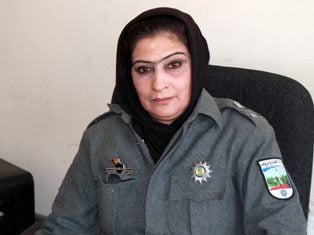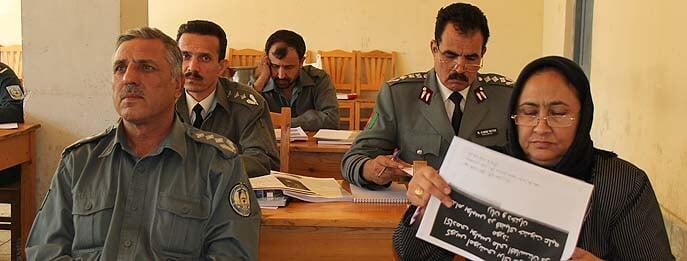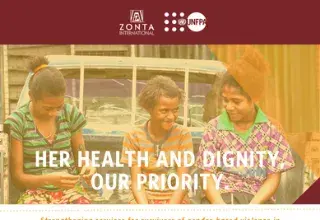KABUL, Afghanistan - “When I was 14 my family married me to an addict who continuously bit me and our two children. One day I decided to return to my own family, but after my father died I couldn’t afford to take care of myself and the kids. I was so desperate that I wanted to commit suicide. Then I decided to go to the police, and they sent me to the shelter where I live now,” says Fawzia, 23, who lives in a women's shelter in the capital city. Her story is one of many in Afghanistan that show how easily women can fall out of the social protection system because of violence within the family.
Studies confirm that the overall level of violence against women in Afghanistan is very high – with most women reporting that they have experienced some form of violence.
Various initiatives are under way to improve Afghanistan’s security and justice systems, but they are not yet sufficient to ensure women’s physical safety or their social and economic security. Despite successful interventions as in Fawzia’s case, in most cases the state fails to provide justice to victims of violence. This is due to ineffective and unfair investigation mechanisms, and to deeply established attitudes that regard domestic violence as a private matter and victims of sexual abuse as adulterers. In addition, investigative methods often re-victimize women and state officials, including police, sometimes commit violence themselves instead of protecting victims and providing related support and assistance.

UNFPA started its cooperation with the Ministry of Interior and its National Police Academy in 2009, after the ministry requested support to incorporate gender concerns into the academy’s curricula.
A tailor-made training manual, “Police Taking Action on Violence Against Women in Afghanistan”, and related course materials were developed in partnership with the ministry, the police academy, the European Union Police Mission in Afghanistan and national stakeholders. A capacity-building programme is ongoing in several provinces.
Lieutenant Zulaikha works in the gender department of the Samshad 202 Police Station, where cases of violence against women are reported daily. She decided to become a police officer to help other women. “Because we live in a country where men will not let women interact with male police officers, policewomen can play a very important role in our society,” she remarks.
Zulaikha recently attended a UNFPA-supported training for police officers on gender-based violence.
“Thanks to the training I know how to investigate cases of violence against women,” Zulaikha says. “In Afghanistan only murder, rape and sometimes beatings are normally considered violence against women. Now I know that violence can have many forms, and I know the procedures to follow in addressing cases ofviolence against women.”
During 2012, UNFPA trained around 500 law enforcement officers from 10 different provinces of Afghanistan to address gender-based violence. In 2013 the Fund plans to extend the programme, with a specific focus on female officers, to further strengthen more the ability of the police and other referral actors, to appropriately address violence against women where it occurs.




